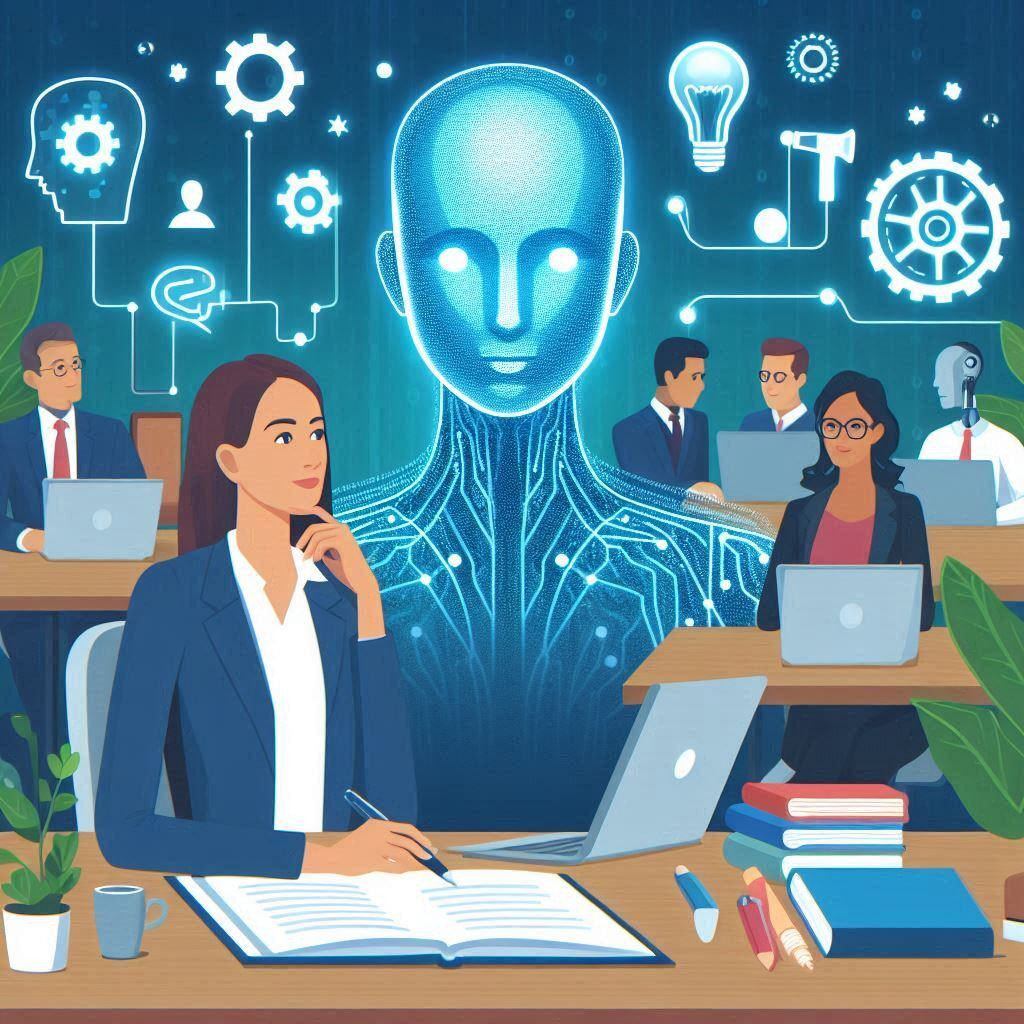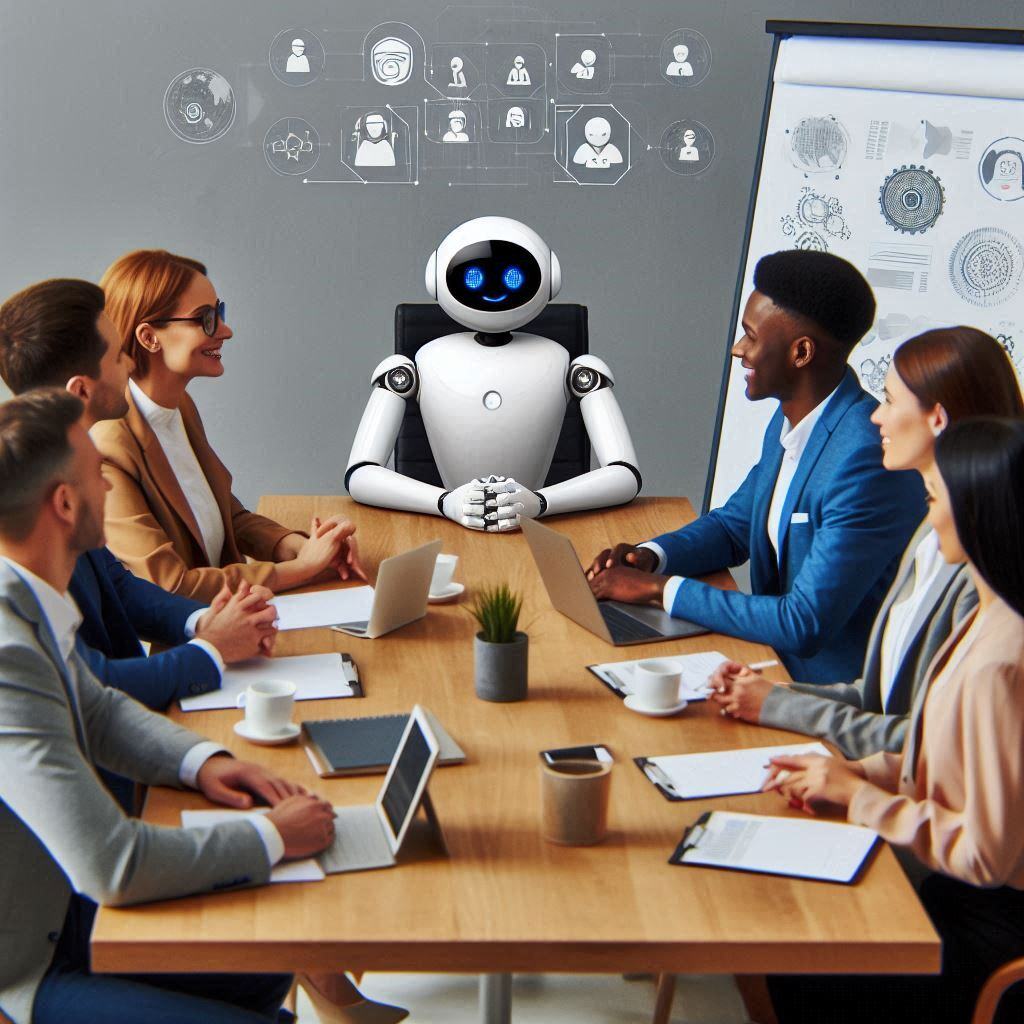AI in HR: Multi-Agent Systems for Enhanced Operations
Artificial intelligence (AI) is redefining human resources (HR) by optimizing operations, improving decision-making, and boosting employee...
Learn how to build AI agents for HR to automate tasks, improve hiring efficiency, and enhance employee experiences.
Artificial Intelligence (AI) is transforming every aspect of business, and Human Resources (HR) is no exception. Building AI agents for HR not only streamlines tedious tasks but also enhances decision-making and improves overall employee experience. This comprehensive guide will walk you through the strategic process of developing and implementing AI agents specifically designed for HR.
AI agents in HR are intelligent virtual assistants or automated solutions designed to perform HR-specific tasks traditionally handled by human professionals. They leverage machine learning, natural language processing (NLP), and automation to handle everything from talent acquisition to onboarding, performance management, compliance, and beyond.
These agents provide scalable, consistent, and unbiased support, freeing HR teams to focus on strategic initiatives and employee engagement.
AI agents automate repetitive tasks, dramatically improving HR productivity by allowing professionals to allocate their time to higher-value activities.
From onboarding to continuous learning and performance feedback, AI agents offer personalized interactions, leading to increased employee satisfaction and retention.
AI ensures consistency in applying company policies and regulations, reducing the risk of human errors and potential legal issues.
Clearly outline the problems or inefficiencies you want your AI agent to solve. Common HR objectives include streamlining recruitment processes, automating onboarding, managing performance reviews, or ensuring compliance with HR regulations.
AI agents rely heavily on data. Gather historical HR data such as past recruitment decisions, employee records, performance evaluations, and onboarding processes. The more comprehensive and structured your data, the more effective your AI agent will become.
Select technologies based on your defined objectives:
Machine Learning (ML): Ideal for predictive analytics such as candidate fit scoring and turnover predictions.
Natural Language Processing (NLP): Essential for chatbots, virtual assistants, and text analysis in applications and feedback.
Robotic Process Automation (RPA): Useful for automating repetitive administrative tasks.
With objectives set and technology selected, your next step is AI model development:
Data Preprocessing: Cleanse and format your data to ensure quality and accuracy.
Model Training: Train your AI model using the prepared data to recognize patterns and perform tasks accurately.
Validation and Testing: Continuously test and validate your AI agent with real-world scenarios to refine its accuracy and effectiveness.
Your AI agent must seamlessly integrate with existing HR management systems, payroll software, or applicant tracking systems (ATS). Robust integration ensures smooth data flow and maximizes the agent’s value to the organization.
Regularly monitor your AI agent’s performance. Use real-world feedback and ongoing data collection to improve accuracy, responsiveness, and overall functionality.
Recruitment AI agents streamline the entire hiring process, from writing optimized job descriptions and sourcing candidates to screening resumes and scheduling interviews. For instance, an AI agent can analyze past hiring successes and predict candidate performance, significantly improving recruitment outcomes.
Onboarding AI agents automate onboarding processes by providing new hires with personalized orientation materials, handling document submissions, and answering frequently asked questions. This ensures consistency and a positive experience for new employees.
Performance management AI agents assist in tracking and evaluating employee performance consistently. They provide actionable insights, automate review cycles, and facilitate unbiased feedback processes.
Compliance-focused AI agents ensure that company policies, employment regulations, and industry standards are consistently met. They monitor employee actions, provide policy guidance, and generate compliance reports automatically.
AI in HR deals extensively with sensitive personal data. Ensure compliance with data privacy laws (e.g., GDPR, CCPA) and develop clear ethical guidelines for AI use in HR.
AI agents should complement human professionals, not replace them. Clearly define the roles of AI agents versus human HR professionals to foster collaboration and acceptance within the HR team.
Maintain transparency about how AI makes decisions. Clearly communicate to employees how their data is used and how AI-driven processes affect them, fostering trust and acceptance.
Evaluating the success of AI implementations involves tracking clear, measurable outcomes:
Time Savings: Measure the reduction in hours spent on manual HR tasks.
Quality of Hires: Track improvements in retention rates, employee performance, and reduced hiring cycles.
Employee Satisfaction: Survey employees regularly to gauge satisfaction with HR processes powered by AI.
Compliance Accuracy: Monitor reductions in compliance violations or errors after AI implementation.
The future of AI agents in HR promises even more advanced capabilities:
Advanced Emotion AI: AI agents capable of understanding employee emotions and providing empathy-driven support, enhancing employee mental health and well-being.
Predictive Workforce Analytics: More sophisticated predictive analytics for identifying talent risks, forecasting skill gaps, and proactively addressing workforce challenges.
Personalized Career Development: AI personalized learning and development recommendations based on employee strengths, aspirations, and organizational needs.
Building AI agents for HR is not merely an exercise in technology adoption; it’s a strategic initiative to enhance organizational efficiency, employee experience, and competitive advantage. By clearly defining objectives, selecting appropriate technologies, maintaining ethical standards, and committing to continuous improvement, businesses can transform their HR processes and position themselves at the forefront of AI-driven innovation.

Artificial intelligence (AI) is redefining human resources (HR) by optimizing operations, improving decision-making, and boosting employee...

With the rapid rise of artificial intelligence (AI) in the workplace, many HR professionals are concerned that their roles are at risk of being...

Businesses and individuals are constantly looking for ways to streamline repetitive tasks and improve productivity. One such task that consumes time...
Start your journey with Integrail

Try AI Studio by Integrail FREE and start building AI applications without coding.

NEW White Paper: Discover how AI Studio accelerates your workflows